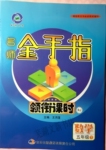
| A£®the suitcases were very heavy |
| B£®he felt very tired |
| C£®a stranger wanted to buy his watch |
| D£®someone asked him what the time was |
| A£®Money . | B£®Batteries . | C£®Watches . | D£®Paper . |
| A£®engineer | B£®sportsman | C£®artist | D£®doctor |
| A£®nothing | B£®$ 1,000 | C£®$ 5,000 | D£®$ 4,000 |
| A£®It can tell the time in different languages . |
| B£®It can tell you where you are . |
| C£®It is easy to wear and carry . |
| D£®It can show a time display for many large cities around the world . |


 Ãûʦ½ðÊÖÖ¸ÁìÏοÎʱϵÁдð°¸
Ãûʦ½ðÊÖÖ¸ÁìÏοÎʱϵÁдð°¸
| Ä꼶 | ¸ßÖÐ¿Î³Ì | Ä꼶 | ³õÖÐ¿Î³Ì |
| ¸ßÒ» | ¸ßÒ»Ãâ·Ñ¿Î³ÌÍƼö£¡ | ³õÒ» | ³õÒ»Ãâ·Ñ¿Î³ÌÍƼö£¡ |
| ¸ß¶þ | ¸ß¶þÃâ·Ñ¿Î³ÌÍƼö£¡ | ³õ¶þ | ³õ¶þÃâ·Ñ¿Î³ÌÍƼö£¡ |
| ¸ßÈý | ¸ßÈýÃâ·Ñ¿Î³ÌÍƼö£¡ | ³õÈý | ³õÈýÃâ·Ñ¿Î³ÌÍƼö£¡ |
¿ÆÄ¿£º³õÖÐÓ¢Óï À´Ô´£º²»Ïê ÌâÐÍ£ºÔĶÁÀí½â
| A£®a family honor | B£®a family secret |
| C£®a family story | D£®a family treasure |
| A£®She was curious about it. | B£®She planned to keep it for fun. |
| C£®She needed it for her school task. | D£®She wanted to scare her parents. |
| A£®they realized their misunderstanding |
| B£®they were crazy |
| C£®they were over excited |
| D£®they both thought they had won the quarrel |
²é¿´´ð°¸ºÍ½âÎö>>
¿ÆÄ¿£º³õÖÐÓ¢Óï À´Ô´£º²»Ïê ÌâÐÍ£ºÍêÐÎÌî¿Õ
| СÌâ1: |
|
| СÌâ2: |
|
| СÌâ3: |
|
| СÌâ4: |
|
| СÌâ5: |
|
| СÌâ6: |
|
| СÌâ7: |
|
| СÌâ8: |
|
| СÌâ9: |
|
| СÌâ10: |
|
| СÌâ11: |
|
| СÌâ12: |
|
| СÌâ13: |
|
| СÌâ14: |
|
| СÌâ15: |
|
²é¿´´ð°¸ºÍ½âÎö>>
¿ÆÄ¿£º³õÖÐÓ¢Óï À´Ô´£º²»Ïê ÌâÐÍ£ºÔĶÁÀí½â
| A£®in the teacher¡¯s office | B£®in an exam room |
| C£®in the school library | D£®in the language lab |
| A£®honesty | B£®sense of duty | C£®seriousness | D£®all of the above |
| A£®the moment he was asked to stay behind |
| B£®when the teacher started talking about honesty |
| C£®only some time later |
| D£®when he was walking out of the room |
²é¿´´ð°¸ºÍ½âÎö>>
¿ÆÄ¿£º³õÖÐÓ¢Óï À´Ô´£º²»Ïê ÌâÐÍ£ºÔĶÁÀí½â

СÌâ1:There were ______ children in the man¡¯s family.| A£®eight | B£®seven | C£®six | D£®five |
СÌâ2:The man¡¯s parents and his wife¡¯s parents came to his house to ______.| A£®suggest placing each child with a different aunt and uncle |
| B£®talk about finding a new wife for him |
| C£®give him money to support the family |
| D£®help take good care of his children |
СÌâ3:Which of the following is TRUE?| A£®Nearly half of the man¡¯s children went to college. |
| B£®The man wanted to give his children to their uncle. |
| C£®The man moved his family and opened a business. |
| D£®The man thought life was hopeless after his wife died. |
СÌâ4:The father died _________________.| A£®before his youngest daughter got married. |
| B£®after his youngest daughter got married. |
| C£®before his children went off to college |
| D£®after his children went off to college |
СÌâ5:The story mainly talks about ______.| A£®why the father didn¡¯t give up his family |
| B£®how the children succeeded after their mother died |
| C£®why the father was lonely |
| D£®how the father raised his large family |
²é¿´´ð°¸ºÍ½âÎö>>
¿ÆÄ¿£º³õÖÐÓ¢Óï À´Ô´£º²»Ïê ÌâÐÍ£ºÔĶÁÀí½â
| A£®reaching in Atlantic on May 19th , 1845 |
| B£®entering a bay on July 19th , 1846 |
| C£®arriving at Baffin Bay in July 1845 |
| D£®coming into Baffin Bay on July 26th , 1845 |
| A£®in August 1850 on Devon Island |
| B£®in January 1846 near Baffin Bay |
| C£®on May 19th , 1845 near Baffin Bay |
| D£®in January 1846 on Devon Bay |
| A£®go away | B£®pass | C£®break into pieces | D£®turn into water |
| A£®Franklin was a British sailor . |
| B£®According to the passage , people don¡¯t know why they died and what happened to them in the passage . |
| C£®On July 26th , 1845 some sailors saw Franklin¡¯s ship entering Baffin Bay . |
| D£®Franklin¡¯s ships had everything they needed , so it was too heavy to sail . |
| A£®The Mystery of the Franklin Expedition |
| B£®Franklin¡¯s Ships |
| C£®Iceberg Was the Killer |
| D£®Sailing sometimes Was Very Dangerous |
²é¿´´ð°¸ºÍ½âÎö>>
¿ÆÄ¿£º³õÖÐÓ¢Óï À´Ô´£º²»Ïê ÌâÐÍ£ºÔĶÁÀí½â
| A£®There was something wrong with his leg. |
| B£®His P.E. teacher told him not to play basketball. |
| C£®He was too short to join the school basketball team. |
| D£®He wasn¡¯t well enough for the school basketball team. |
| A£®join the school ping-pong team. |
| B£®take part in another basketball club. |
| C£®take part in the city ping-pong match. |
| D£®beat others and win a championship. |
| A£®Ping-pong made Harry happy. |
| B£®Ping-pong is easier than basketball. |
| C£®Harry is a high school student. |
| D£®Harry and his team won the match. |
| A£®Harry is too short to play basketball. |
| B£®Harry wants to be a basketball player. |
| C£®Making a change may be good for you. |
| D£®a big dream can bring you success. |
²é¿´´ð°¸ºÍ½âÎö>>
¿ÆÄ¿£º³õÖÐÓ¢Óï À´Ô´£º²»Ïê ÌâÐÍ£ºÍêÐÎÌî¿Õ
| СÌâ1: |
|
| СÌâ2: |
|
| СÌâ3: |
|
| СÌâ4: |
|
| СÌâ5: |
|
| СÌâ6: |
|
| СÌâ7: |
|
| СÌâ8: |
|
| СÌâ9: |
|
| СÌâ10: |
|
²é¿´´ð°¸ºÍ½âÎö>>
¿ÆÄ¿£º³õÖÐÓ¢Óï À´Ô´£º²»Ïê ÌâÐÍ£ºÔĶÁÀí½â
²é¿´´ð°¸ºÍ½âÎö>>
°Ù¶ÈÖÂÐÅ - Á·Ï°²áÁбí - ÊÔÌâÁбí
ºþ±±Ê¡»¥ÁªÍøÎ¥·¨ºÍ²»Á¼ÐÅÏ¢¾Ù±¨Æ½Ì¨ | ÍøÉÏÓк¦ÐÅÏ¢¾Ù±¨×¨Çø | µçÐÅթƾٱ¨×¨Çø | ÉæÀúÊ·ÐéÎÞÖ÷ÒåÓк¦ÐÅÏ¢¾Ù±¨×¨Çø | ÉæÆóÇÖȨ¾Ù±¨×¨Çø
Î¥·¨ºÍ²»Á¼ÐÅÏ¢¾Ù±¨µç»°£º027-86699610 ¾Ù±¨ÓÊÏ䣺58377363@163.com